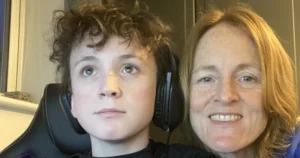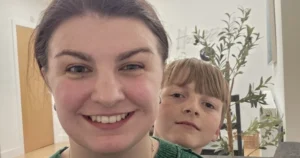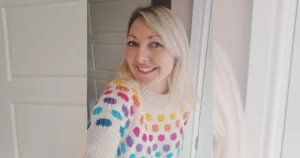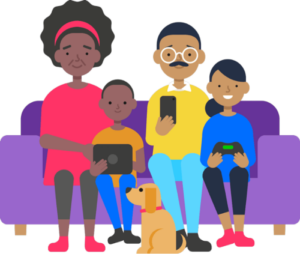Learning how to interact online can be a steep learning curve for children taking their first steps into the online world. Mum of four Laura Hitchcock shares her experiences helping her children navigate stranger danger and digital relationships.
Laura Hitchcock can’t remember a time when she wasn’t teaching her children about communication online. “It was as soon as they started using a computer, just like we taught them to cross the road and use a fork, we taught them about how to talk to people online.”
Making online safety tech tools work for kids
With a background in technology and online sales, Laura felt confident to give her children advice on keeping safe. However, she also relied on software and online safety tools from McAfee, Norton, and BT. “We found the online parental control software to be really helpful,” Laura says.
If you’re using parental controls, talk them through with children and explain why they’re important, adds Laura. “If they find they’re too restrictive, talk openly and see if there’s a compromise you can both be happy with.”
Agreeing on online safety rules
In the Hitchcock family, the number one rule is that if you don’t know someone in real life, you must not share your name, age, address or any other personal information. “The other rules are age-appropriate,” explains Laura. “I expected my 9-year-old to check with me before befriending someone new, but I trust my 16-year-olds to choose their own friends.”
Helping children manage digital relationships
Times change and Laura urges other parents to realise that online relationships can be just as real and important to kids as “real life” friendships. “Don’t dismiss them as ‘just’ online, if a girl or boy is present on a screen not in your kitchen,” Laura says.
Last year, Laura’s son flew to Finland to meet his online girlfriend of a year for the first time. “He worked to save to airfare to visit her three times during their relationship, and we helped him to arrange that,” says Laura. “I think it’s important to just treat them as a natural part of a child’s life. Stop thinking of them as a separate ‘online’ relationship; they’re just all relationships.”
Trusting children to make smart choices online
That said, Laura does monitor when the children are talking to strangers online. This is much closer when the children are younger with a bit more freedom as they get older. “I trust them to keep the rules as much as I trust them to cross the road by themselves. It’s about keeping communication open, and knowing they can come and chat about anything that happens.”
One of Laura’s sons was befriended in an online game server by another boy, who gifted him an expensive new game. “Within a couple of weeks, he was asking to chat via webcam, although his own camera happened to be broken,” says Laura.
At this point, Laura’s son backed away, blocked the stranger and told his parents what had happened. “I think my son had been very trusting until then, but now he’s more cautious,” says Laura. “But he followed the family rules. He walked away and blocked someone who made him uncomfortable, and he also told us and reported the account to the server admins.”
Importance of understanding tech kids use
Laura finds that it’s friends who don’t know about the technology that tend to have the biggest problems. “That’s why I tell parents to educate themselves; it’s the most important factor in keeping children safe,” she says. “My kids kept to the rules because I set them, I understood them, and I enforced them.”
Over the years, Laura has worked hard to find a balance in how she approaches the issue of managing online relationships. “I want to teach my kids about the risks, but I don’t want to scare them into thinking the Internet is full of Bad People!” she says.
Benefits of forming digital relationships
Overall, the children have very positive online relationships, Laura adds. “All of my children have wide groups of friends from all over the world, they’re rarely ‘alone’ when they’re online, and they can easily find their tribe,” she says. “Having a large number of online friends myself, I completely understand that the Internet opens the way to meeting like-minded people in places you just wouldn’t go in your everyday life.”

Laura writes the LittleStuff blog full-time from Dorset where she lives with her husband and four kids. When she’s not writing she’s trying desperately to avoid the laundry and the need to cook (and the fact that her babies are almost grown-ups).






